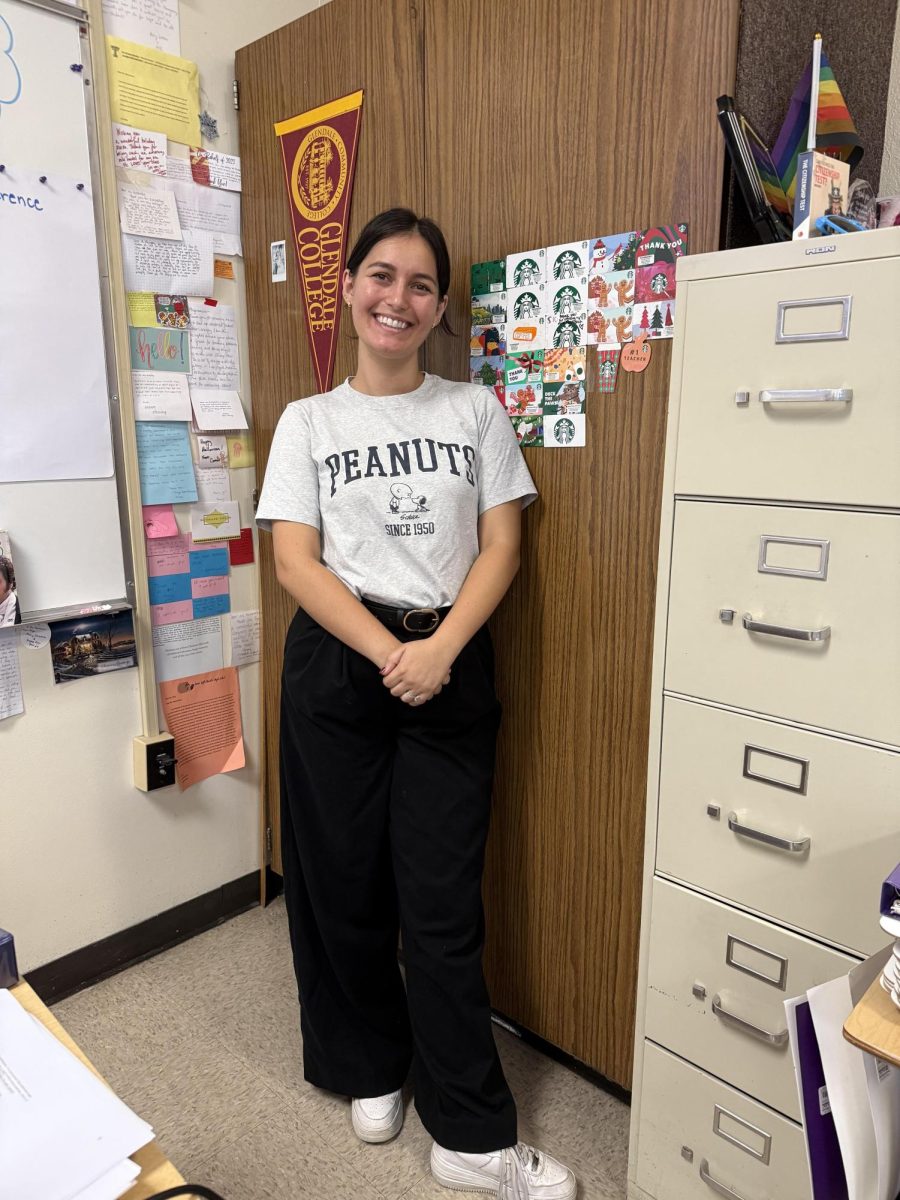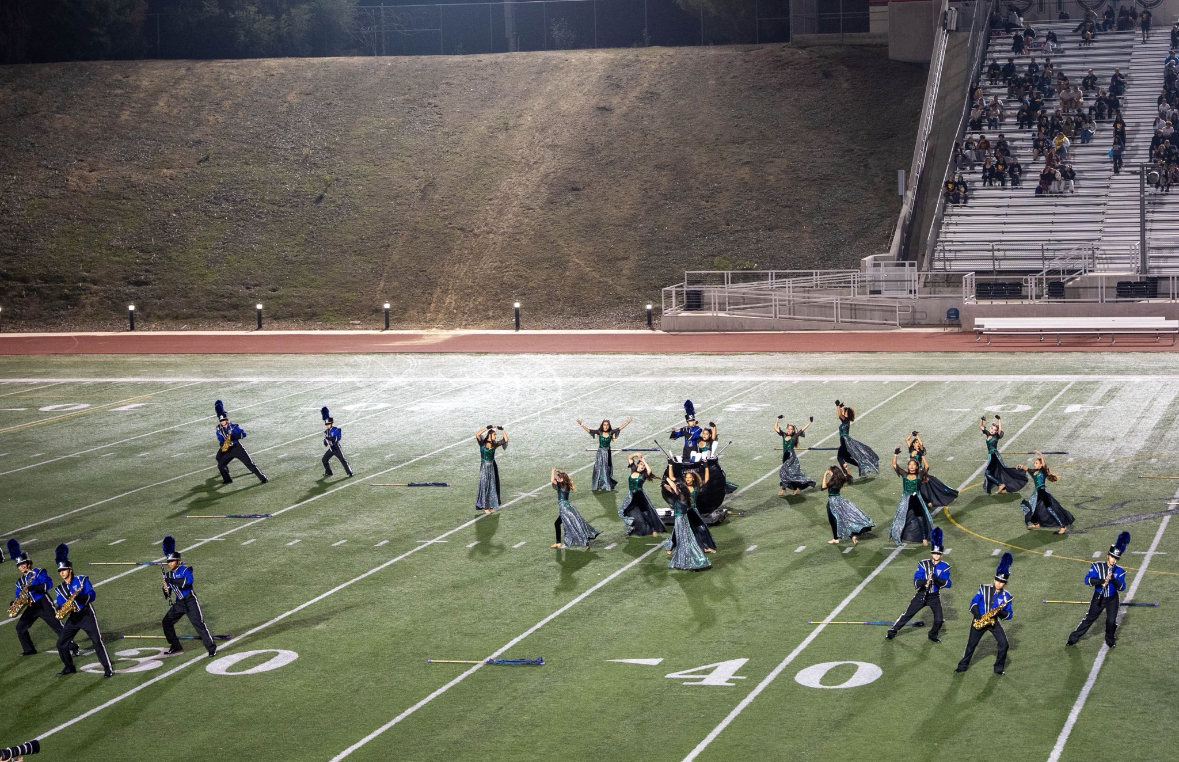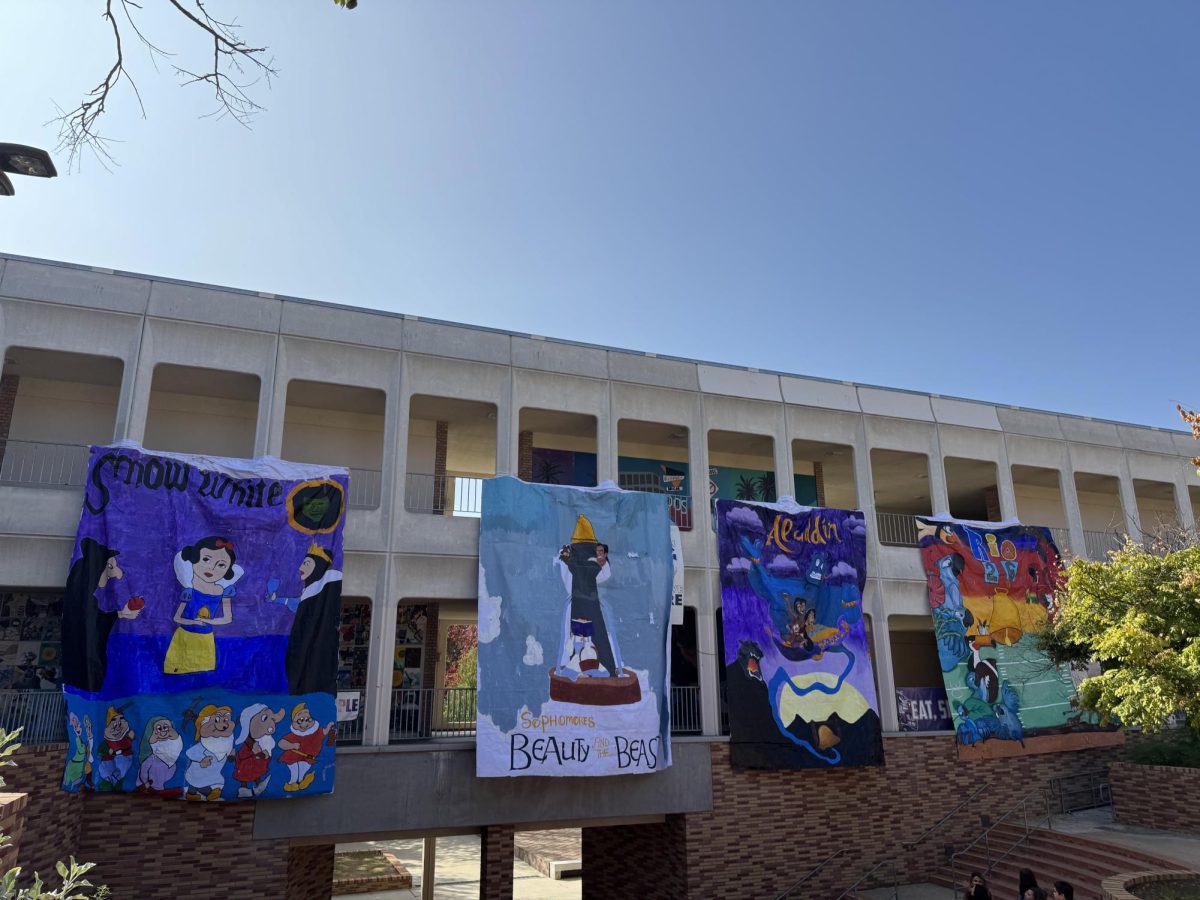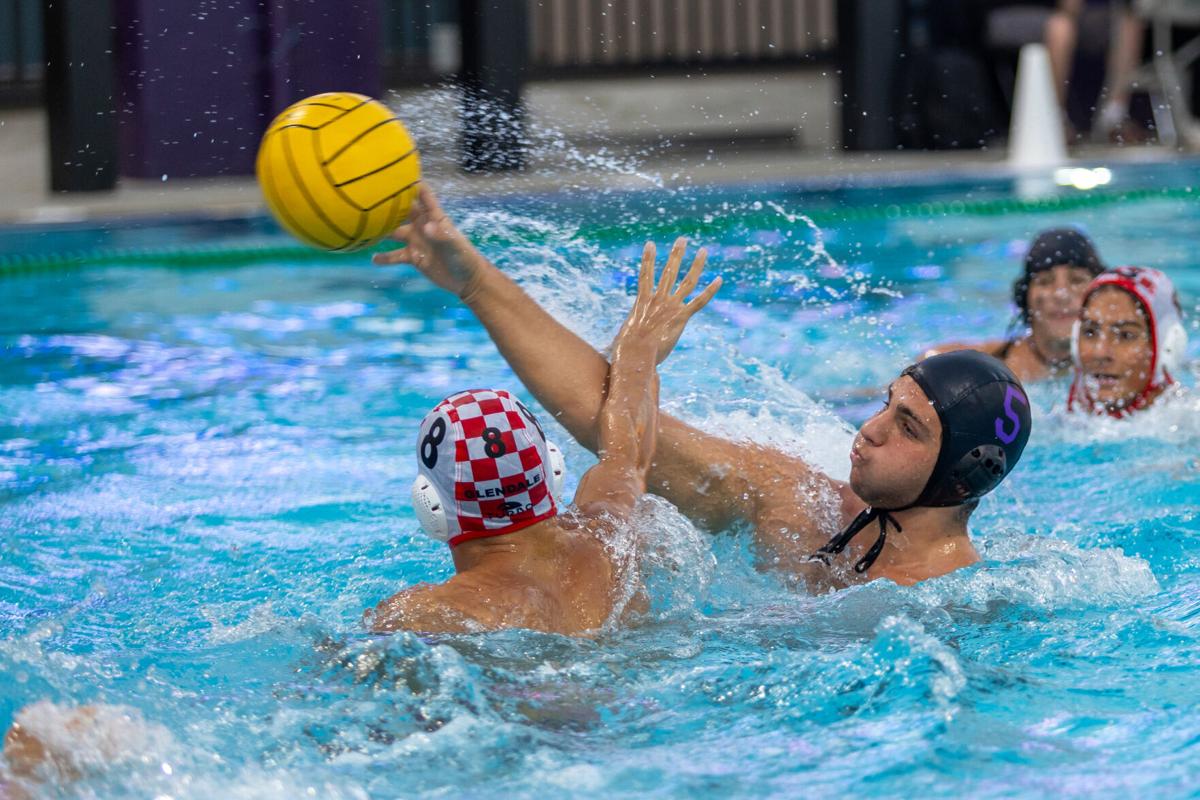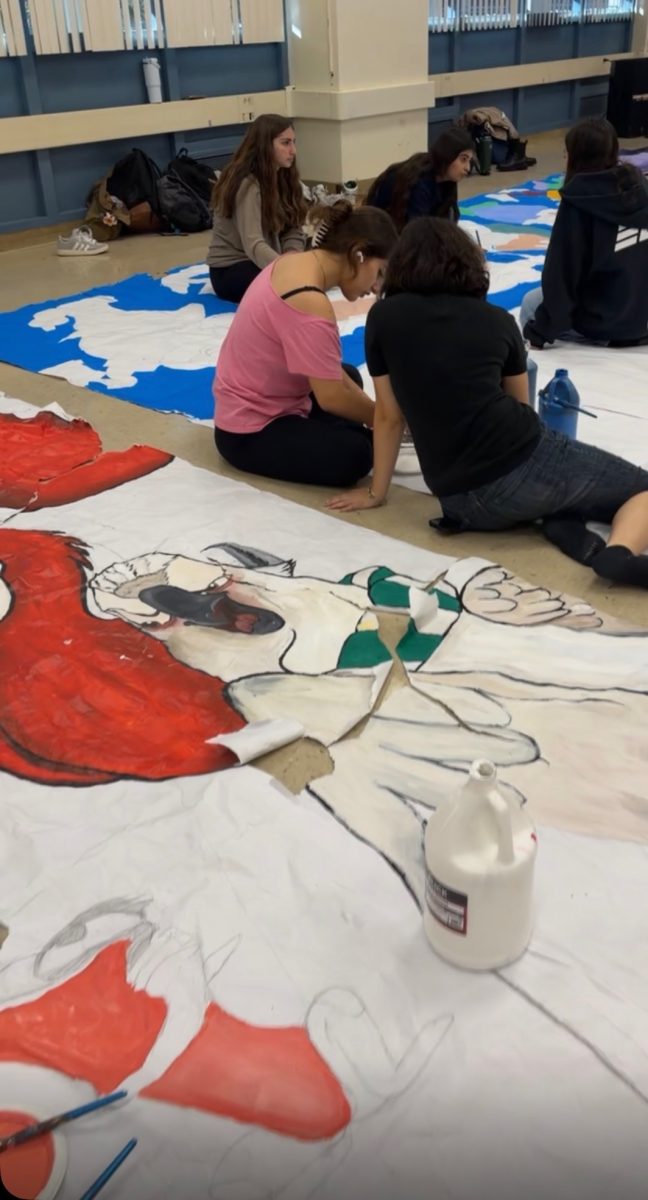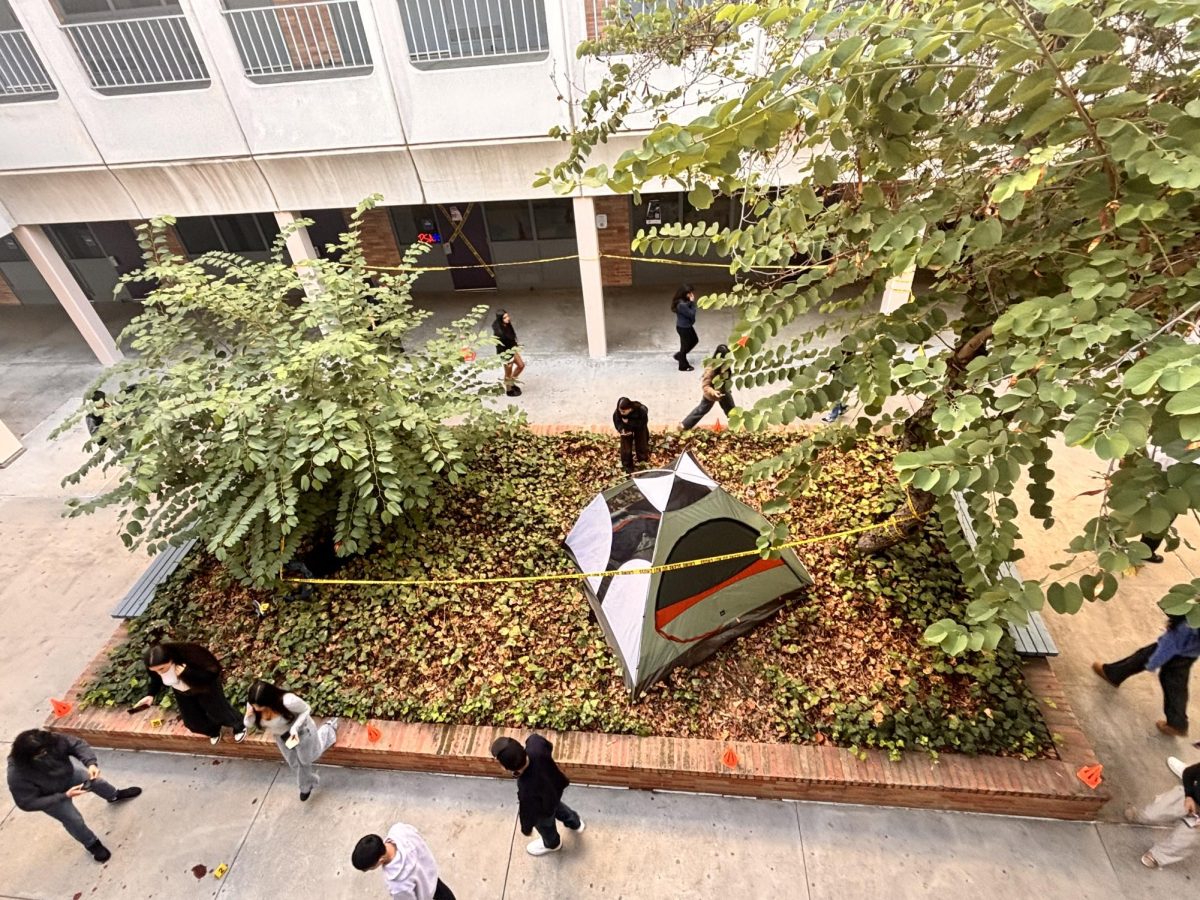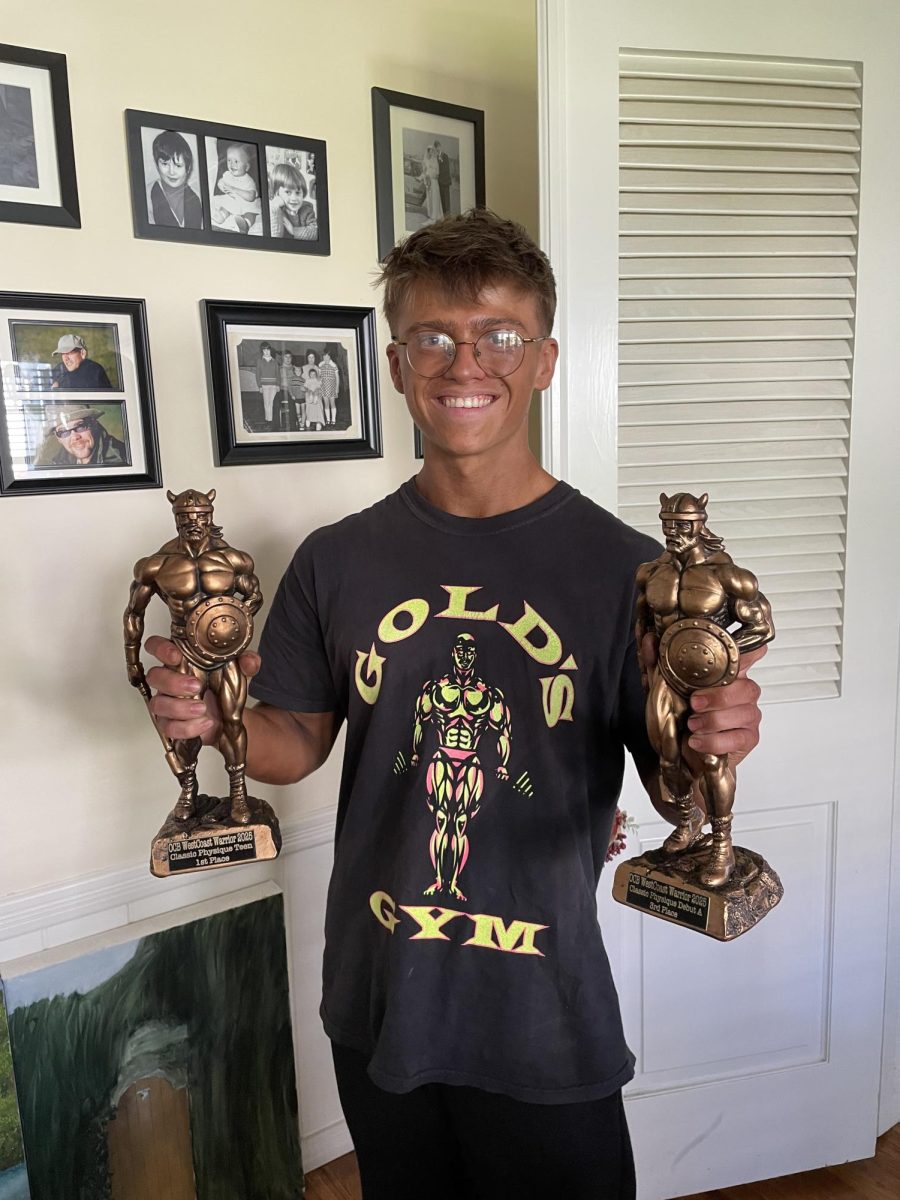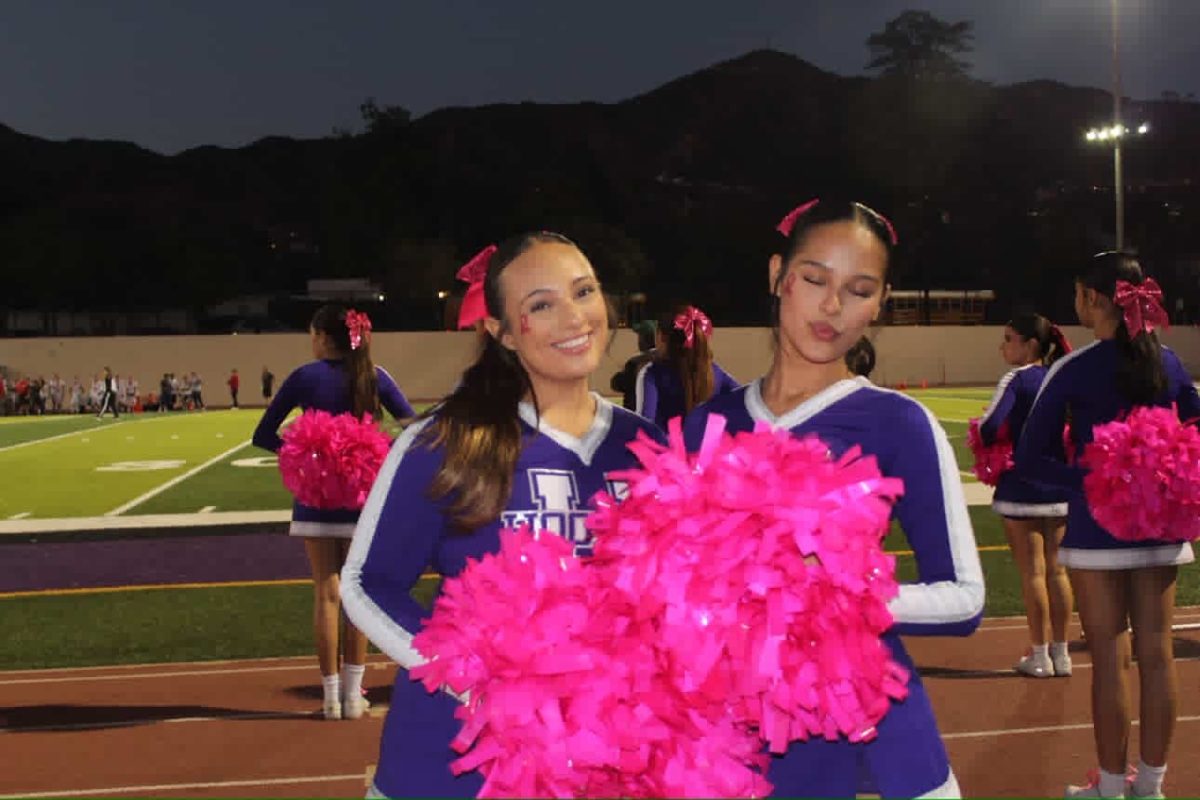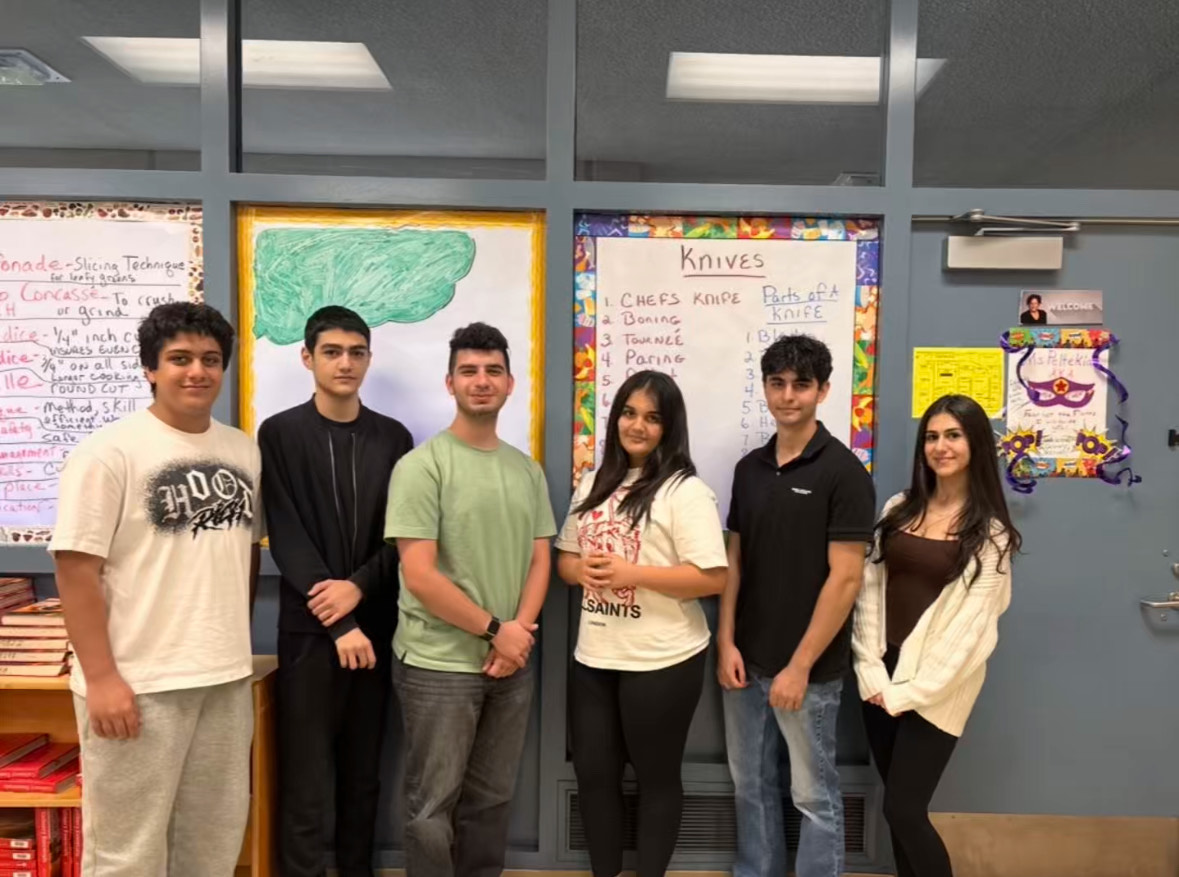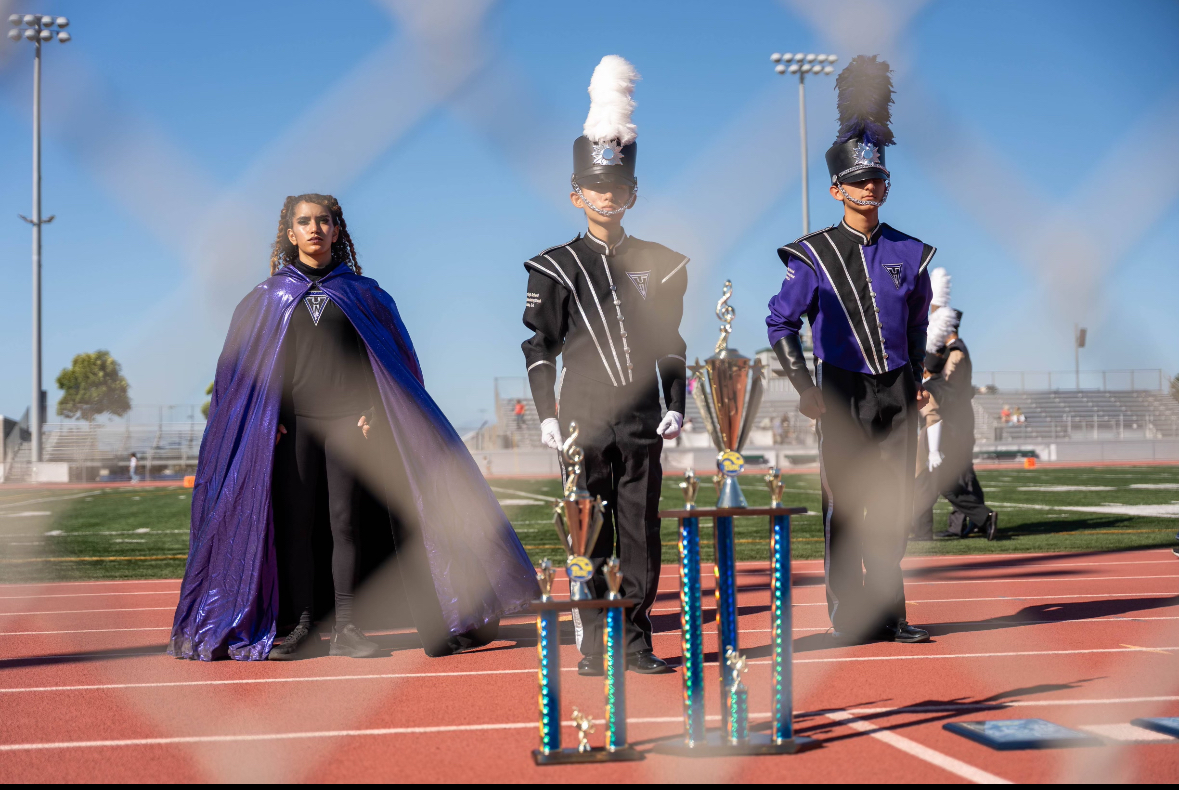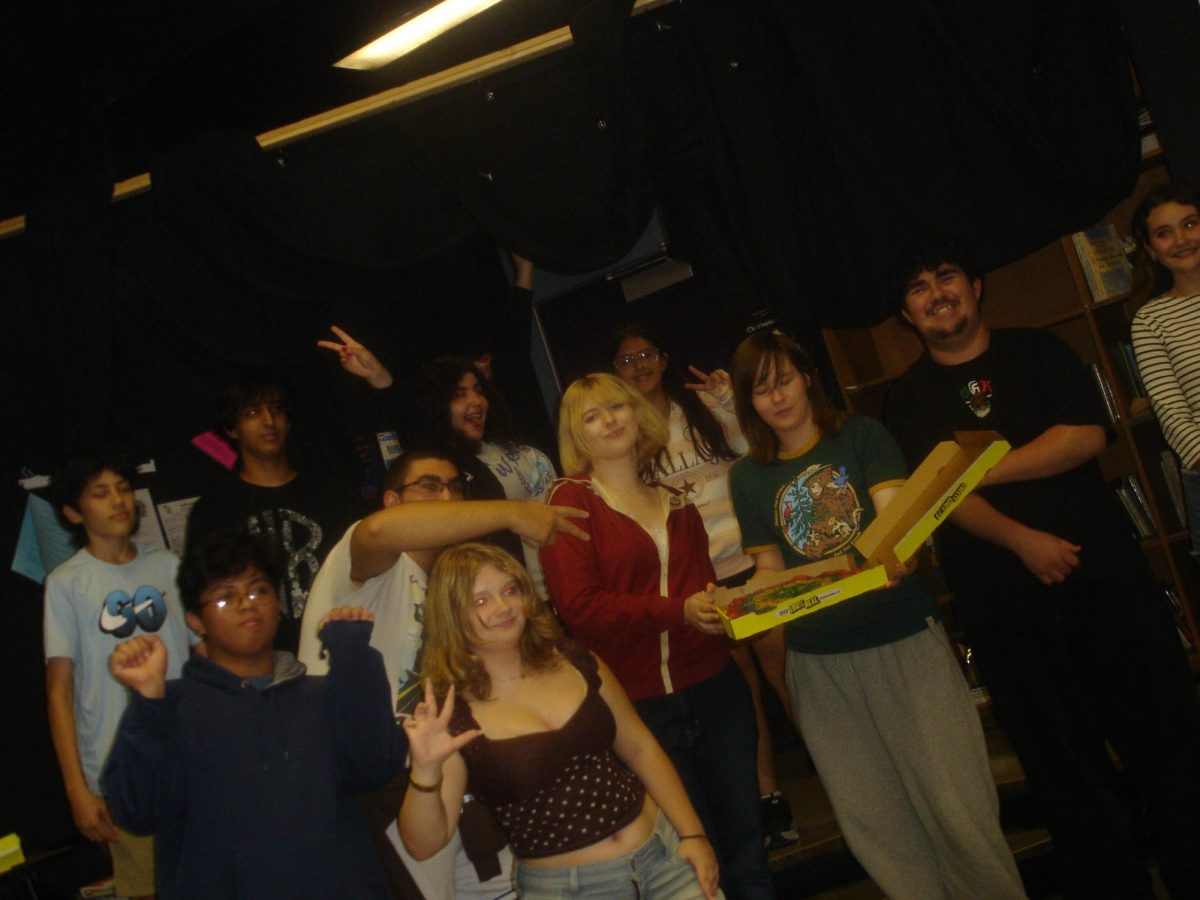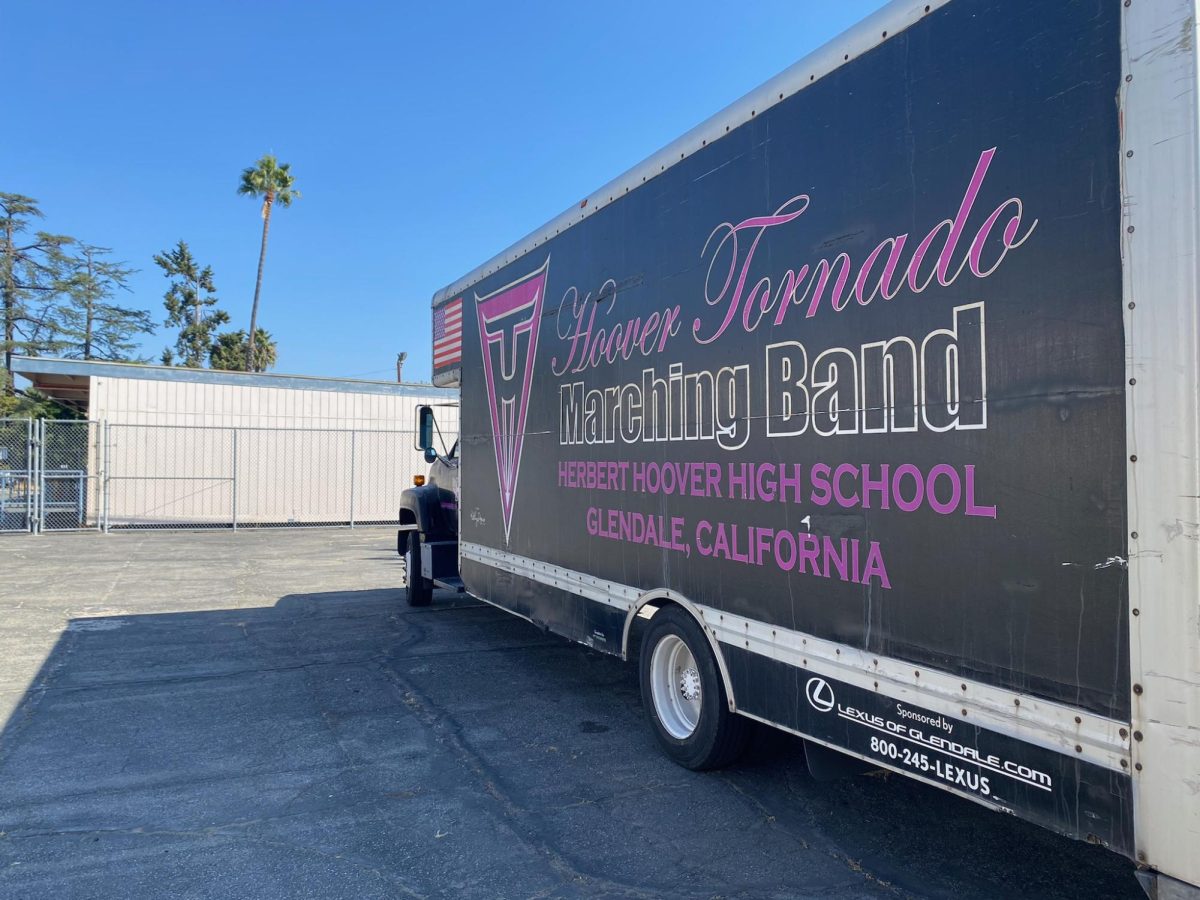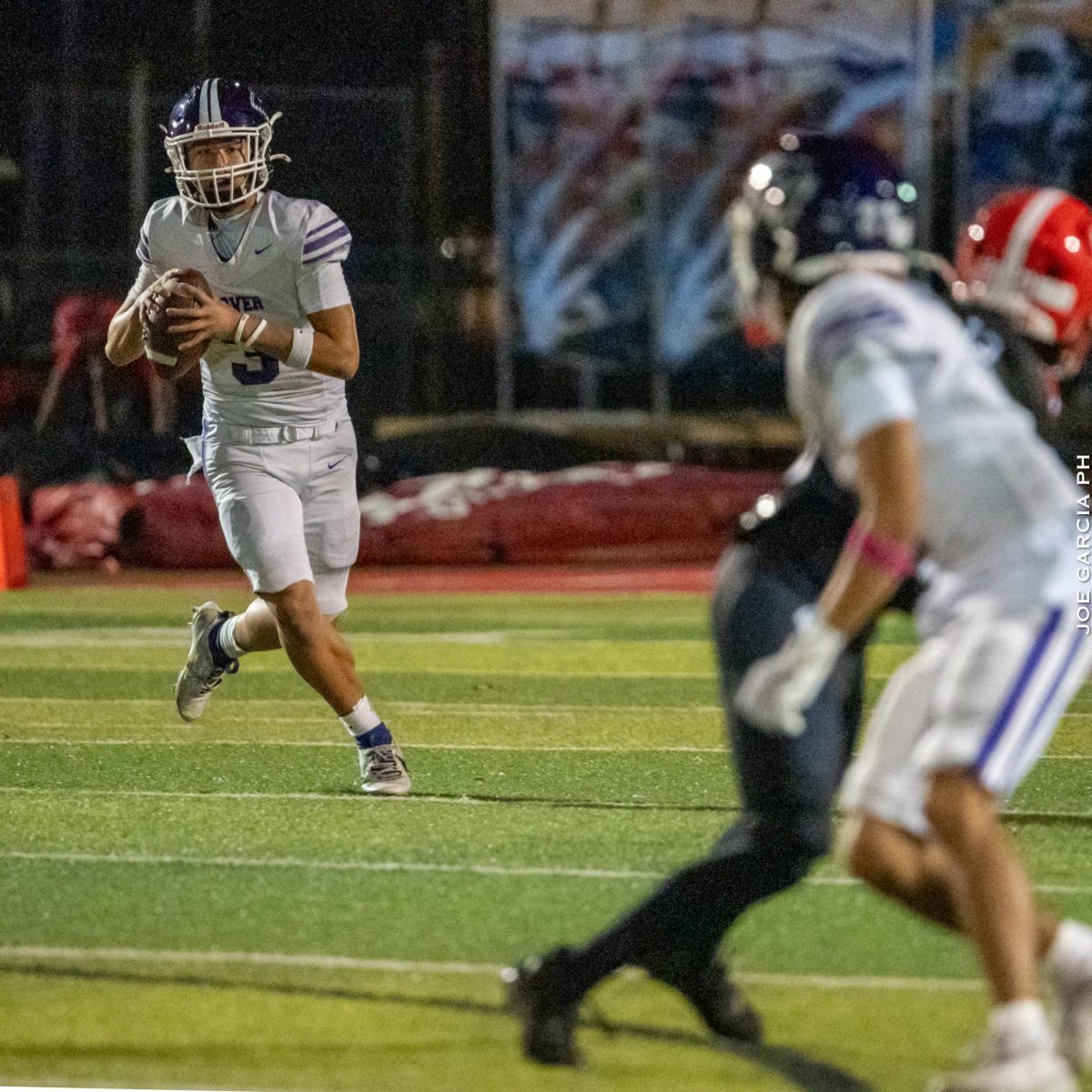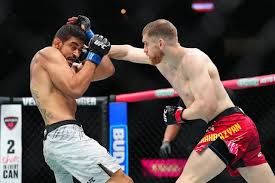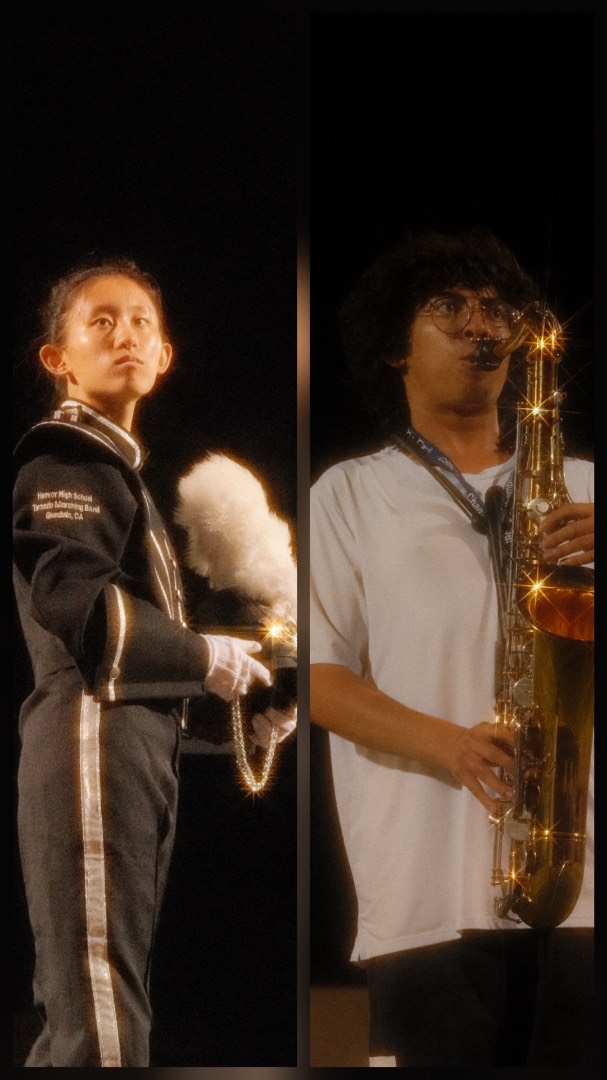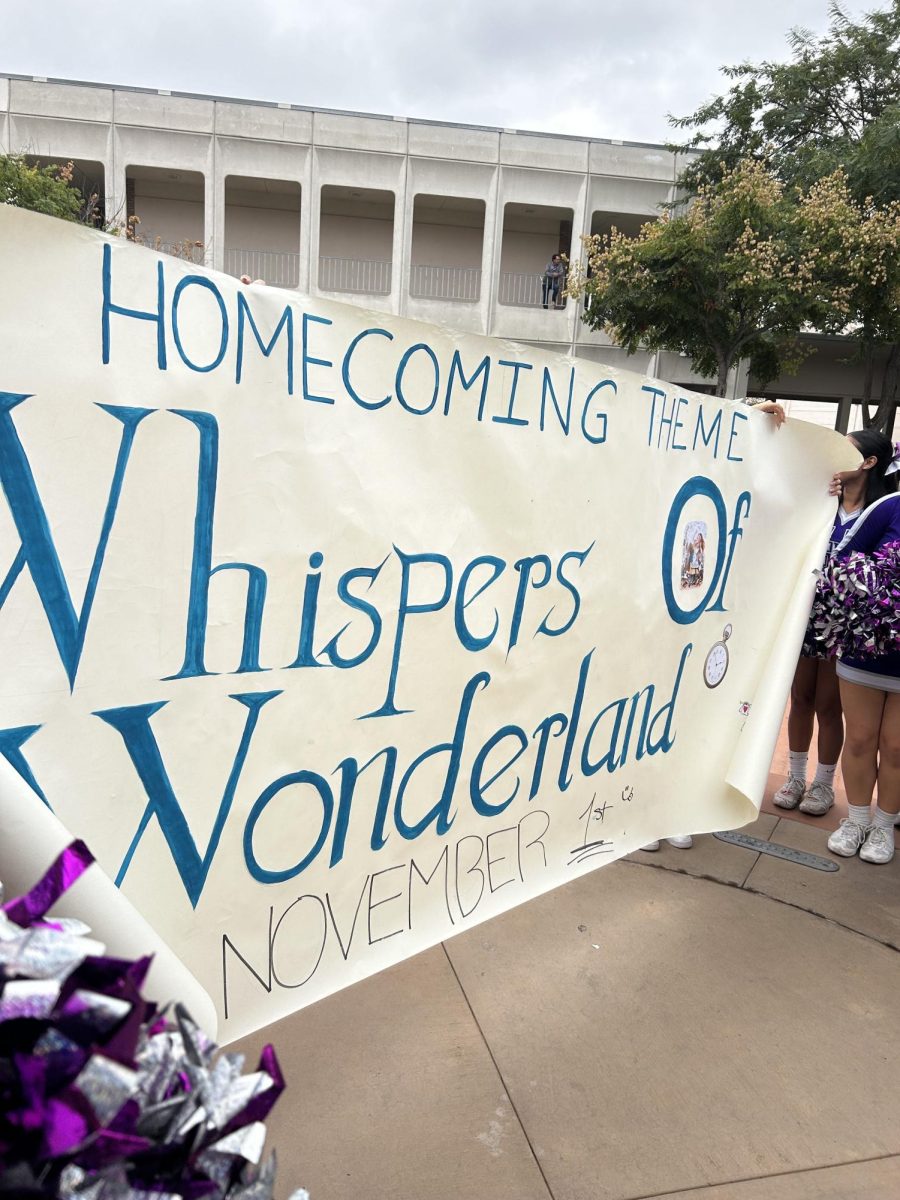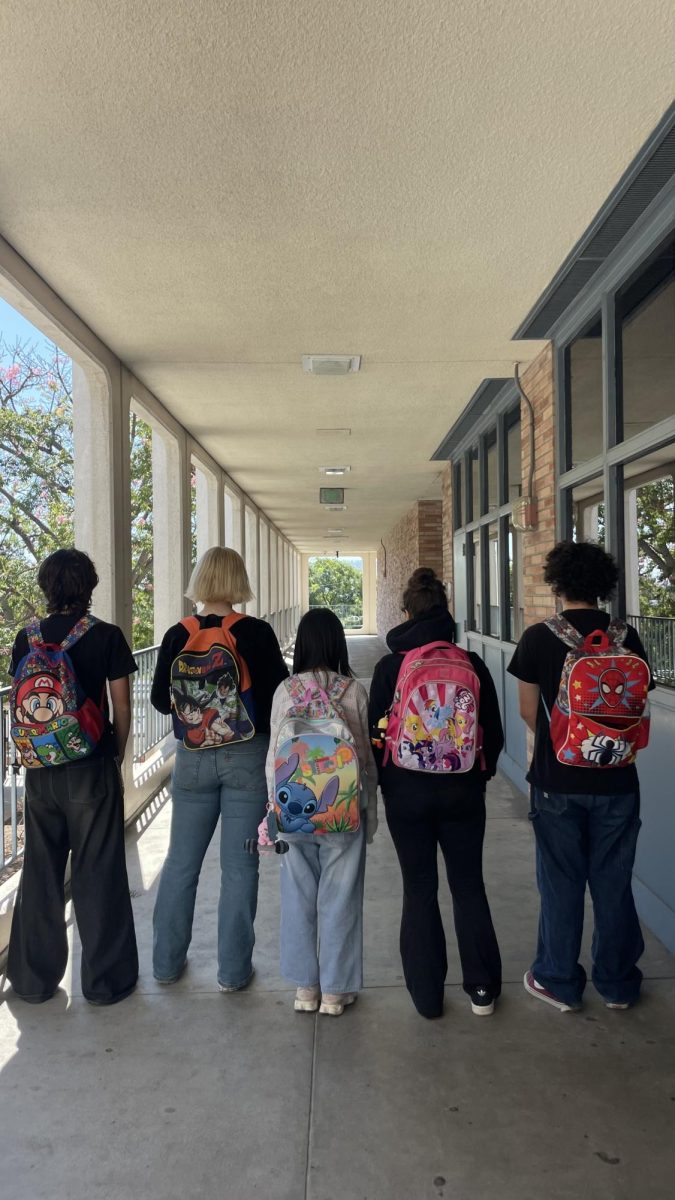While guiding students toward their futures, counselor Emma Hernandez and social science teacher Alexandra Mazmanian shared their own journeys and offered valuable advice they hope will be inspirational.
Hernandez shared her motivation behind becoming a counselor.
“Several factors motivated me, but the biggest one is my love for working with kids,” Hernandez said. “I know firsthand that students go through a lot in their lives—I certainly did when I was young—and I believe every student deserves supportive adults to help them navigate both the highs and the lows.”
Hernandez demonstrated the three domains she follows that help students through their high school-to-adulthood transition.
“[First domain, academic] I make sure students are in the right classes, understand graduation requirements, and are building strong study habits that will carry them into college or a career,” Hernandez described.
“[Second domain, career/college] I guide students in exploring careers, setting goals, and finding pathways—whether that’s a four-year university, community college, trade school, or straight into the workforce.
“[Third domain, social/emotional] I help students build confidence, manage stress, and develop the coping skills they’ll need to handle life’s challenges beyond high school. Together, these supports help students develop the academic, career, and social/emotional skills they need to thrive as adults.”
Hernandez revealed the truth on what her favorite part about her job is.
“It’s funny–schedules are actually my least favorite part of being a counselor,” she said. “What I truly love are the direct interactions with students. Helping them discover their college or career path, creating space to talk through personal challenges, and working together to identify and remove barriers to their learning and success.”
“I also enjoy working with their families, because supporting students often means supporting the people around them. Most of all, I value getting to know students as individuals—their stories, strengths, and dreams—so I can guide them in ways that are personal and meaningful.”
She also shared she wanted to become a counselor while completing her bachelor’s degree in Social Psychology so at the time she worked with kids at a youth center, “I just knew I wanted to do more to support young people,” Hernandez mentioned.
Mazmanian uncovered what’s most rewarding about her job.
“I would say seeing the moment when it clicks for them [students]. Some students get content very fast and that’s not a struggle for them but maybe the moment it clicks for them is when we talk about careers and they’d be like ‘wait I’d actually be really good at that!’” Mazmanian expressed.
“Maybe for some students it’s their social. I’ve had students for various reasons struggle socially with other students and maybe for them the clicking moment is that they made a friend in my class. For others it’s the moment they get into top ranked schools [and] all their work has paid off. For me it’s whatever that ‘ah-ha!’ moment is for each of my students.”
Mazmanian discussed about who was her inspiration for becoming a history teacher.
“[In] my senior year, I didn’t want to become a teacher,” Mazmanian said. “I never thought I was ever going to be one, I thought I was going to be a politician, I thought I was going to be a lawyer. I got into UCLA and teaching wasn’t even on my mind, but I always worked with children. I was a camp counselor so I enjoyed working with them but I thought ‘It’s awful who would want to do this full time?!’
She tearfully recalled a special memory.
“[But] my AP Gov. teacher, who was a grandpa everyone had so much respect for him, asked at the end of the year ‘Who’s gonna go into the medical field, who’s gonna go into this?’ [and] ‘who’s gonna be a teacher?’ nobody raised their hands and he [Mazmanian’s AP Gov. teacher] said ‘It’s such a shame I have the best and brightest minds and I’m concerned who’s going to be next to shape the best and brightest minds?’ and that hurt,” she said.
“[So] I got to college then I took educational classes and I kept learning that ‘if kids don’t get an education, it is so hard for them to be successful, to pay the bills, to become what you want. So I was like ‘well the best thing to do is to put myself in that position’. 12th grade to me is such a defining moment, although the classes aren’t hard, it is such a pivotal year you make such big decisions. I thought [about] becoming a teacher in a 12th grade classroom and help students on the next path, I care that they have the tools to do what they want to do,” Mazmanian ended.
Mazmanian spoke about the various ways she makes her history class enjoyable and engaging for her students.
“I try so hard. Everyday I ask myself the same thing. Part of it is projects. I think the projects are creative and there not dense because it needs to be approachable for students. I like to see their creativity flare,” Mazmanian touched on.
“I also think the subjects I teach is relevant to your life. You can’t ignore the government and we could teach it as if the government is this outside thing but I think the more examples I give them [students] in their daily life, I think looking at the state’s standards and asking myself ‘What matters to my kid? What matters to my kid in 10 years?’
“So I focus a lot on your rights and your liberties. I try to connect a lot of our students [from] their certain backgrounds. You may never experienced the french revolution but that’s not the point; the point is can you understand the fear, the choices that were made, where has that differed, and when have we made different choices in history? Because you’re gonna make those choices. We are all part of what will become part of our history and it changes the next generation, it changes our generation too.” Mazmanian continued.
Mazmanian concluded with the number one take away she wants her students to gain from her class.
“I want them to feel empowered, I want them to understand that you’re not supposed to have all the right answers and life is not a multiple choice test but do you have the tools that you need that when you want something that is not yours yet?” she said. “Do you know how to get it? Do you have the confidence, the skills, the logistical information to go out and achieve it or at least attempt to achieve it? Because sometimes we make different choices and that’s fine too.”

